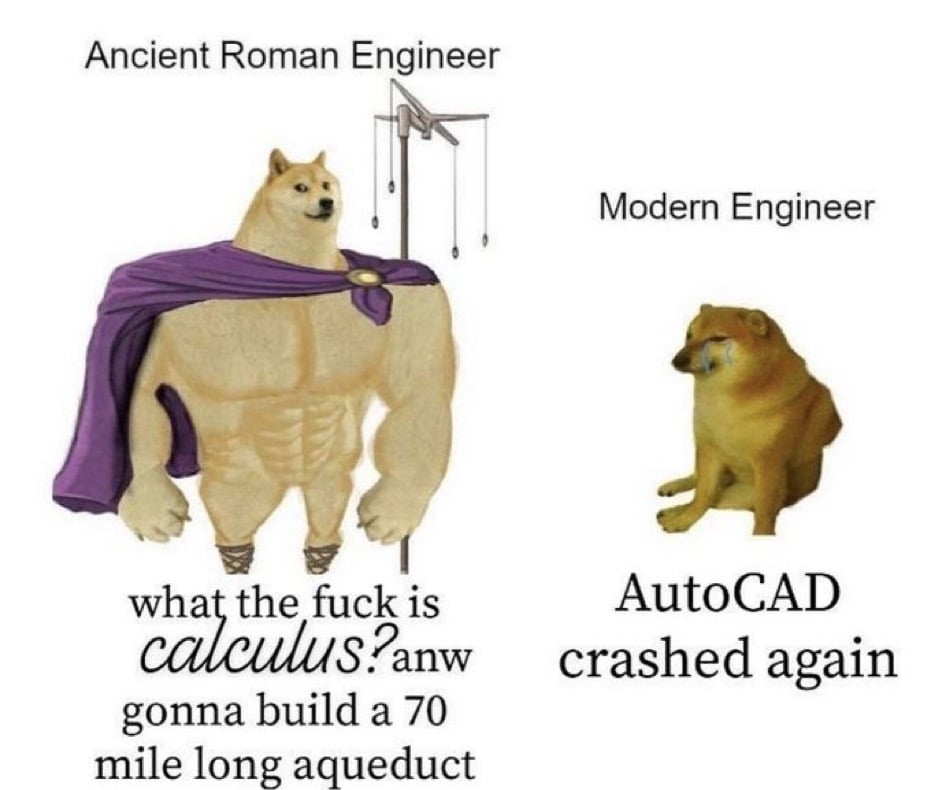this post was submitted on 03 Oct 2024
559 points (96.4% liked)
196
16800 readers
1821 users here now
Be sure to follow the rule before you head out.
Rule: You must post before you leave.
founded 2 years ago
MODERATORS
you are viewing a single comment's thread
view the rest of the comments
view the rest of the comments

The mathematics mentioned in the first source have nothing to do with engineering though.
Ratios, a little trigonometry and geometry, all of which are essentially under the geometry category and arithmetic are not what concerns the engineering field. They are architectural tools if you will. Of course they utilized geometry, that's not something innovative. Maths in general does not mean anything here, maths can be about number theory(completely unrelated to any practical application).
What differentiates them and engineers now is essentially mechanics. Forces, torques, stresses, materials, masses, moments of inertias etc. They never applied quantitative engineering principles, their structures were only sound from experience and intuition, the geometry mentioned was for architectural purposes.